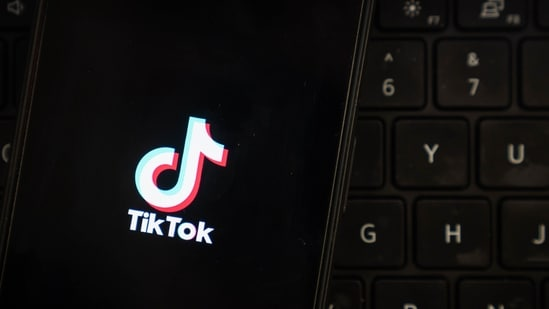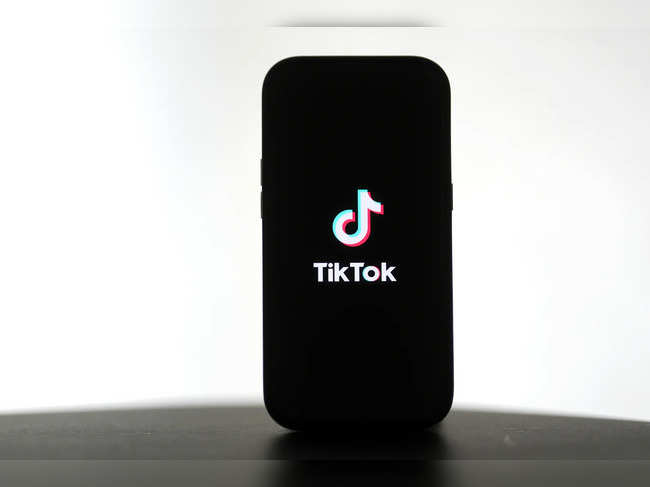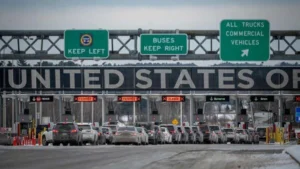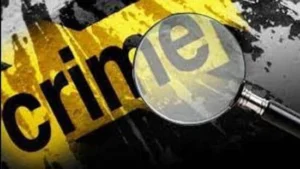TikTok US ban looms: What’s next for Apple, Google’s app stores from Sunday?

TikTok US ban – TikTok has threatened to “go dark” on January 19 unless Biden administration clarifies enforcement of law.
With President-elect Donald Trump adding uncertainty around whether a TikTok ban will go into effect, the focus is now turning to companies like Google and Apple that are expected to take the popular video sharing app off their platforms in just two days.
Though the Supreme Court on Friday unanimously upheld a federal law that could ban TikTok nationwide, it’s unclear how a shutdown of the popular social media platform will play out and what Americans will see when the clock strikes midnight on Sunday.
The court decision comes against a backdrop of unusual political agitation by Trump, who vowed that he could negotiate a solution after he takes office, and the administration of President Joe Biden, which has signaled it won’t enforce the law beginning Sunday, his final full day in office. Now, tech observers — and some users — are intently watching to see what happens over the weekend and beyond
“We’re really in uncharted territory here in terms of tech policy,” said Sarak Kreps, the director of Cornell University’s Tech Policy Institute.
Under the law, mobile app stores — like the ones operated by Apple and Google — and internet hosting services will face major fines if they continue to distribute the platform to U.S. users beyond the deadline for divestment from ByteDance, TikTok’s China-based parent company. The companies could pay up to $5,000 for each user who continues to access TikTok, meaning penalties could total to a large sum.
Late Friday night, TikTok posted a statement on X saying that “the Biden White House and the Department of Justice have failed to provide the necessary clarity and assurance to the service providers that are integral to maintaining TikTok’s availability to over 170 million Americans.”
“Unless the Biden Administration immediately provides a definitive statement to satisfy the most critical service providers assuring non-enforcement, unfortunately TikTok will be forced to go dark on January 19,” it said.
Experts have noted TikTok’s app should remain available for current users, but existing ones will no longer be able to update it, making it unusable in the long term.
Trump’s national security adviser has signaled this week that the incoming administration may take steps to “keep TikTok from going dark,” though what that looks like — and if any of those steps can withhold legal scrutiny — remains unclear.
“My decision on TikTok will be made in the not-too-distant future, but I must have time to review the situation,” Trump said Friday in a post on Truth Social after the court’s ruling. Earlier in the day, he said in another post that TikTok was among the topics in his conversation with Chinese leader Xi Jinping.
In the meantime, some of the attention has turned to tech companies, such as Apple, Google and Oracle, who currently offer TikTok on their app stores or host company data on their servers.
Tech CEOs have been attempting to forge friendlier ties with Trump, who wants to put the TikTok ban on hold, since he was elected in November. But Kreps said it would “defy credulity” for them to continue to offer TikTok, even if they want to please Trupm since it would open them up to punitive fines.
Tech companies are also used to removing apps at the behest of governments. In 2023, Apple says it removed nearly 1,500 apps globally. Nearly 1,300 of the apps were taken down in China.
Meanwhile, David Choffnes, executive director of the Cybersecurity and Privacy Institute at Northeastern University in Boston, said he believes there’s a “small chance” that nothing happens to TikTok, but acknowledged that would require “enormous risk on the on the part of the companies that support them.”
Apple, Google and Oracle did not respond to questions sent this week about their plans on TikTok.
In a video after the court ruling, TikTok CEO Shou Chew, who is expected to attend Trump’s inauguration and be granted a prime seating location on the dais, thanked the president-elect for “his commitment to work” with TikTok to “find a solution” that keeps the platform available.
“We are grateful and pleased to have the support of a president who truly understands our platform — one who has used TikTok to express his own thoughts and perspectives, connecting with the world and generating more than 60 billion views of his content in the process,” Chew said.
Earlier this week, TikTok told its U.S. employees that its offices would remain open for work even if the “situation” won’t be resolved by Sunday. In the memo, which was first reported by The New York Times and confirmed by the company, TikTok told workers that their “employment, pay and benefits” were secure, adding that the law was written in a way that impacts the U.S. user experience, not the entities that employ them.
Meanwhile, in a letter sent Friday to Biden and Attorney General Merrick Garland, an attorney for TikTok creators who sued the government asked the administration to pause enforcement of the law “until there is further definitive guidance.”
“In addition, we request that you clarify that no app store, internet hosting service, or other provider faces any risk of enforcement or penalties with respect to TikTok, CapCut, or any other ByteDance apps, until such further guidance has been issued,” said the letter by attorney Jeffrey Fisher.

TikTok, a global social video app owned by China-based ByteDance, faces a potential ban in the US unless sold to a US owner. Concerns about national security and links to China prompted US lawmakers and president Biden to enforce the law. The Supreme Court upheld the decision, setting the ban effective from January 19, 2025.
If it feels like TikTok has been around forever, that’s probably because it has, at least if you’re measuring via internet time. What’s now in question is whether it will be around much longer and, if so, in what form?
Starting in 2017, when the Chinese social video app merged with its competitor Musical.ly, TikTok has grown from a niche teen app into a global trendsetter. While, of course, also emerging as a potential national security threat, according to US officials.
On April 24, President Joe Biden signed legislation requiring TikTok parent ByteDance to sell to a US owner within a year or to shut down. TikTok and its China-based parent company, ByteDance, filed a lawsuit against the US, claiming the security concerns were overblown and the law should be struck down because it violates the First Amendment.
With Thanks and Reference to :https://www.hindustantimes.com/world-news/tiktok-us-ban-looms-whats-next-for-apple-googles-app-stores-from-sunday-101737171735395.html and https://economictimes.indiatimes.com/tech/technology/how-tiktok-grew-from-a-fun-app-for-teens-into-a-potential-national-security-threat/articleshow/117346131.cms?from=mdr







